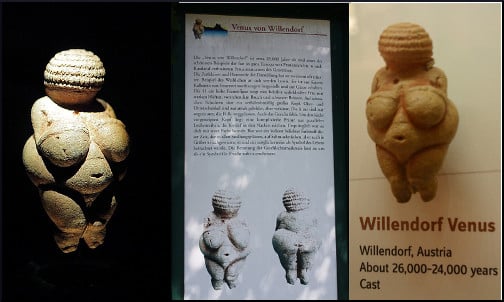
This is brand new, ahead of The New Yorker‘s print edition, so it’s hot stuff. Jerome Groopman, who specializes in writing about medicine and biology, begins by harking back to the days when cholesterol was considered the #1 obesity villain:
My father’s blood-cholesterol level — not to mention that of his siblings and friends — became a regular topic of conversation at the dinner table. Yet, despite the restrictive diet, his number scarcely budged, and a few years later, in his mid-fifties, he had a heart attack and died.
This personal anecdote touches on the universal, because millions of adult children could tell the same story.
Groopman reviews the evolution of orthodox thinking about dietary fat, and how popular culture discovered the Mediterranean diet, the Atkins diet, the Paleo diet, and so forth, and gave them each a whirl. The surprises include a horrifying list of things people used to eat in the belief that weight loss would ensue.
He also looks back at the history of size acceptance, as evidenced by portly goddess figurines like the ancient Venus of Willendorf (at the top of the page), and by the era when painter Paul Rubens painted flesh that threatened to ooze right out of the picture frames.
Groopman retraces the course of his own education about these matters, and gives two currently popular, research-dense books a mixed review:
Both say that fat is unfairly maligned, and both inadvertently end up revealing that the science behind their claims is complex and its findings hard to translate into usable advice.
He describes Sylvia Tara’s The Secret Life of Fat as “a useful primer on the biology of fat” and also as “part physiology and part marketing pitch.” This latter is not as bad as it sounds, because what she hopes to sell is an attitude, one that does not regard lipids as our enemy, or our body fat as a burdensome mass of “inert blubber.” Some of us had not even known that our fat is now considered an actual endocrine organ.
The reviewer seems to think that Tara gets a little too carried away in discussing, for instance, the connections between obesity and diabetes. In this area, much is hypothesized, but little is proven. Also, she shows too much enthusiasm for the Ad-36 theory, to which Groopman replies:
There are many reasons to be skeptical: there’s no evidence that fowl can pass Ad-36 to humans, and there are many viruses that could easily be mistaken for Ad-36.
Gary Taubes, in The Case Against Sugar, blames the insidious crystal for just about everything, and claims that the bad reputation of fat was all a big scam. The author names names and quotes bribe amounts, and lays out the evidence for how sugar has been the #1 obesity villain all along. Groopman is sympathetic to the idea, but chastises Taubes for positing links that don’t actually exist, and for providing, on some subjects, more speculation than fact.
Groopman notes that “Science is an accretion of provisional certainties” and defines the problem with most diet books:
They hold out the hope that, if you just fix one thing, your whole life will be better.
Your responses and feedback are welcome!
Source: “Is Fat Killing You, or is Sugar?,” NewYorker.com, 04/03/17
Photo credits (left to right): Ryan Somma; gmourits; Georgi Nemtzov via Visualhunt/CC BY

 FAQs and Media Requests:
FAQs and Media Requests: 











